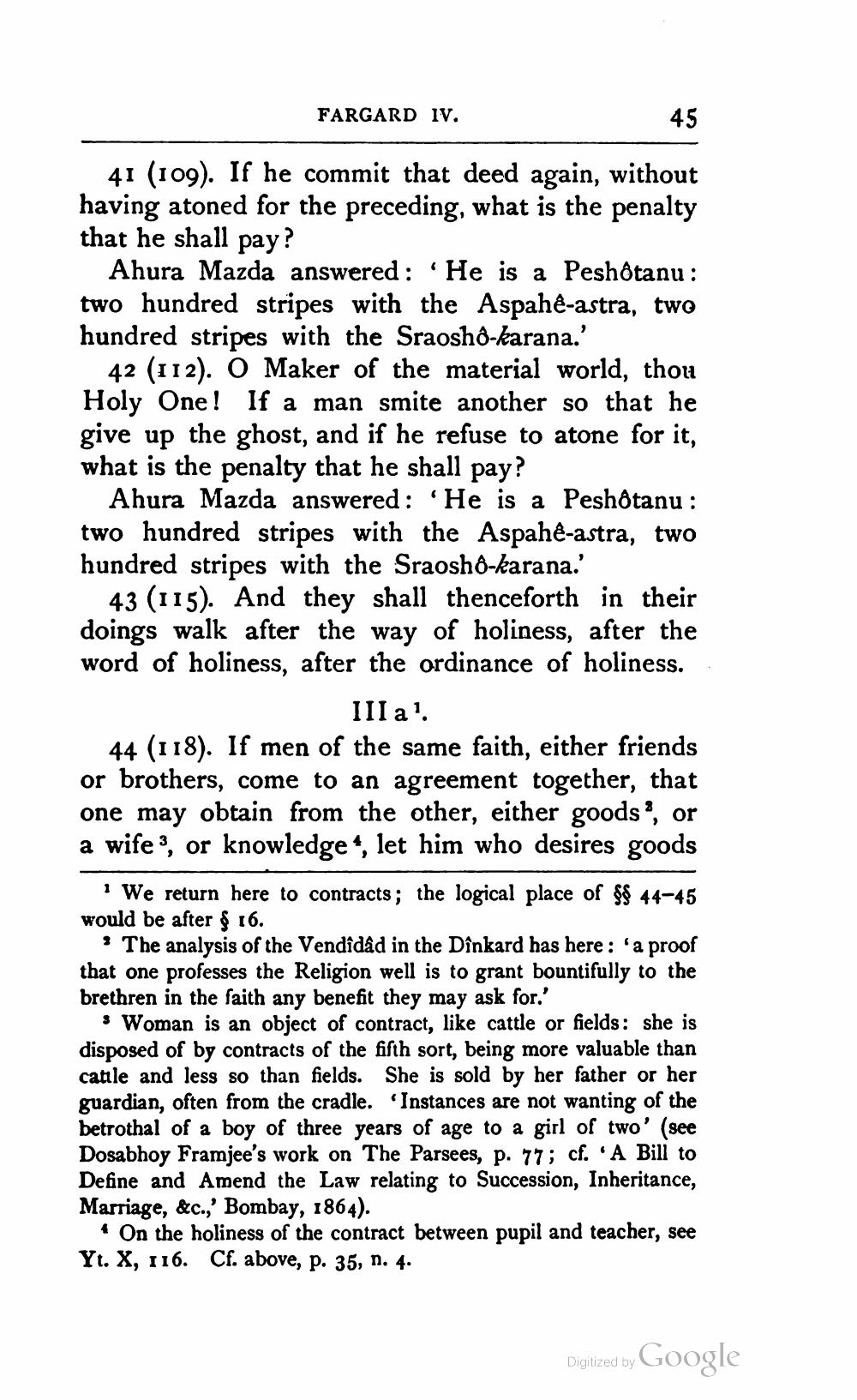________________
FARGARD IV.
41 (109). If he commit that deed again, without having atoned for the preceding, what is the penalty that he shall pay?
Ahura Mazda answered: 'He is a Peshôtanu : two hundred stripes with the Aspahê-astra, two hundred stripes with the Sraoshd-karana
42 (112). O Maker of the material world, thou Holy One! If a man smite another so that he give up the ghost, and if he refuse to atone for it, what is the penalty that he shall pay?
Ahura Mazda answered: 'He is a Peshôtanu : two hundred stripes with the Aspahe-astra, two hundred stripes with the Sraosho-karana.'
43 (115). And they shall thenceforth in their doings walk after the way of holiness, after the word of holiness, after the ordinance of holiness.
IIIa! 44 (118). If men of the same faith, either friends or brothers, come to an agreement together, that one may obtain from the other, either goods, or a wife 3, or knowledge 4, let him who desires goods
We return here to contracts; the logical place of $$ 44-45 would be after § 16.
• The analysis of the Vendidad in the Dînkard has here : 'a proof that one professes the Religion well is to grant bountifully to the brethren in the faith any benefit they may ask for.'
• Woman is an object of contract, like cattle or fields: she is disposed of by contracts of the fifth sort, being more valuable than catile and less so than fields. She is sold by her father or her guardian, often from the cradle. 'Instances are not wanting of the betrothal of a boy of three years of age to a girl of two' (see Dosabhoy Framjee's work on The Parsees, p. 77; cf. 'A Bill to Define and Amend the Law relating to Succession, Inheritance, Marriage, &c.,' Bombay, 1864).
• On the holiness of the contract between pupil and teacher, see Yt. X, 116. Cf. above, p. 35, n. 4.
Digitized by Google




